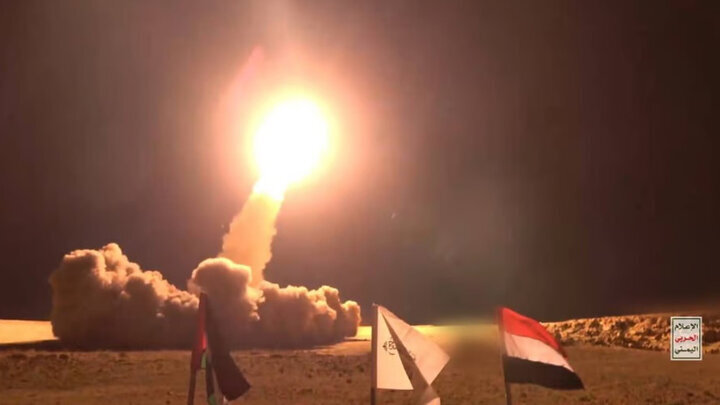The deepening security dilemma facing Israel

TEHRAN - The Sunday missile strike by Yemen's Ansarallah movement on Israel's Ben Gurion Airport marks a significant and alarming breach of security inside Israel.
The attack showed Israel’s vulnerability more than ever before, proving that the region is entering a new stage. Now, Israel should lick its wounds. The ripple effects of the attack will continue to resonate across the occupied Palestinian territories for many years.
The missile, identified as a hypersonic ballistic type, struck within the airport’s restricted area near Terminal 3, injuring eight individuals and temporarily halting flight operations.
This incident is unprecedented in both scale and audacity. Despite multiple interception attempts, Israel’s advanced multi-layered missile defense system—including the U.S.-supplied THAAD and Arrow interceptors—failed to neutralize the incoming threat. This failure raises serious questions about Israel’s defensive readiness against new-generation missiles.
Ben Gurion Airport, located near Tel Aviv, is Israel’s primary international gateway. It handles approximately 25 million passengers annually under normal conditions.
It is not only central to tourism and international trade but also critical to the country’s global economic connectivity and Jewish diaspora relations.
Furthermore, the airport is deeply integrated into Israel’s military infrastructure, facilitating the rapid deployment of troops and equipment.
Security at the facility is maintained through coordinated efforts between the IDF, Israel Police, and demining units.
The missile strike has revealed several critical vulnerabilities in Israel’s security architecture:
Missile defense limitations: The inability to intercept a hypersonic missile underscores gaps in the missile defense network, especially against advanced threats combining speed, stealth, and maneuverability.
Geographical exposure: Ben Gurion’s location—close to key population and political centers—makes it a high-value target for long-range attacks, even from distant conflict zones such as Yemen.
Intelligence and early-warning failures: The successful missile launch highlights possible intelligence blind spots regarding the evolving capabilities of resistance movements.
Economic vulnerability: The airport’s shutdown caused immediate disruptions. Notably, Israel’s aviation sector had already suffered a $28.8 million loss in the first nine months of 2024 due to the Gaza conflict, with a 34% decline in passenger traffic and widespread cancellations leading to job losses.
Historical significance of the attack
The missile strike on Ben Gurion Airport represents a turning point in the Arab-Israeli conflict. It not only challenges Israel's image of military invulnerability but also reconfigures regional strategic calculations.
As Abdel Bari Atwan, editor-in-chief of Rai al-Youm, observes, this is the first time a Yemeni-manufactured supersonic missile has reached the heart of one of Israel’s most sensitive installations—without assistance from a major power. This development reflects both the technological advancements of resistance groups and a failure in Israeli intelligence and deterrence mechanisms.
The strategic and symbolic significance of the attack can be analyzed in several key dimensions:
First, the attack showed that the Yemeni resistance and groups aligned with the Axis of Resistance have reached a level of capability that can change the equations of battle and put Israel in a defensive position.
Second, this event had significant psychological and social consequences for Israeli society and created a wave of fear and insecurity among the citizens and security institutions of the regime.
Third, the attack was not only a military victory for Yemen but also brought new hope and motivation for Arab and Muslim nations and the Axis of Resistance.
Finally, the attack exposed the hypocrisy and inaction of Arab countries claiming support for Palestine and showed that only nations that believe in resistance can change historical equations.
The attack on Ben Gurion marks the beginning of a new era of regional conflicts in which the resistance forces have taken the initiative, and Israel can no longer consider itself invincible.
Leave a Comment